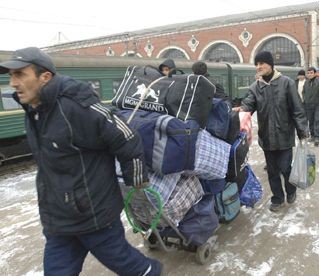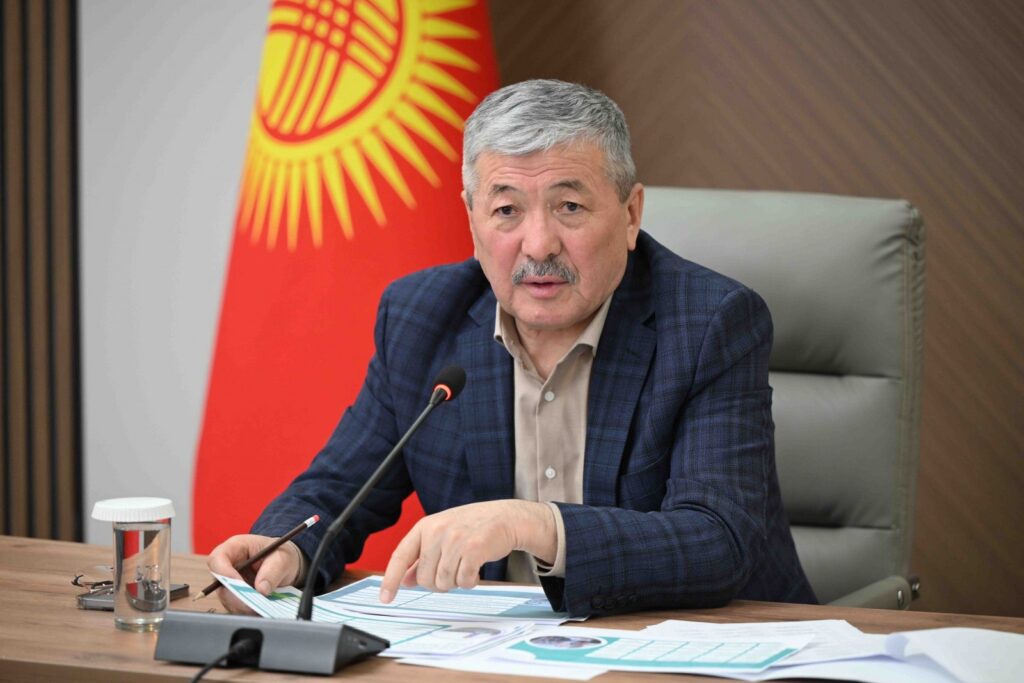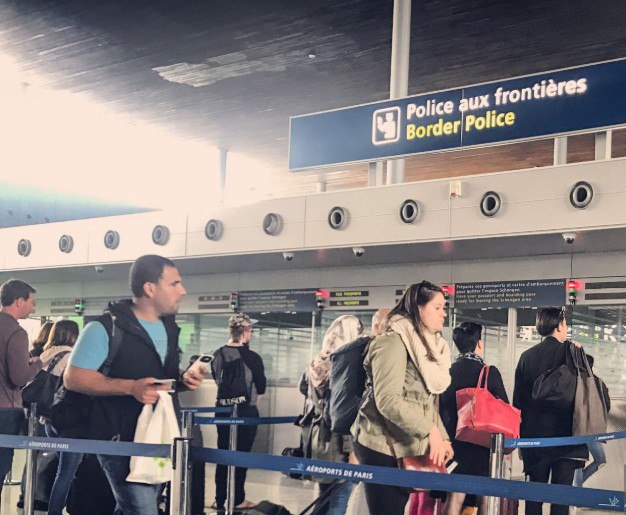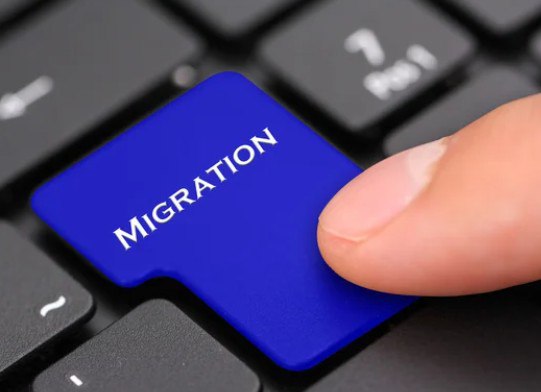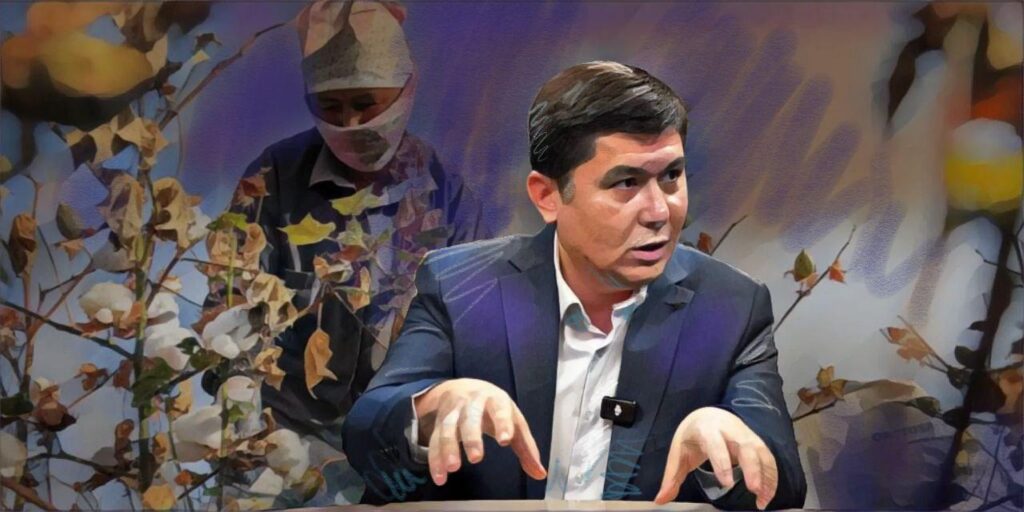BISHKEK (TCA) — A street performance aimed to draw the attention of citizens to illegal migration and trafficking in human beings was held in Bishkek earlier this week.
Human trafficking is a transnational crime connected to drugs and arms trafficking. It is also a human rights issue, because it deprives people being bought and sold of their basic rights and freedoms, the Migration Service of Kyrgyzstan said. Finally, it is a national security issue, because trafficking pipelines can be used by terrorist organizations to carry out violent acts. Last year, the Migration Service helped 175 former “slaves” return to Kyrgyzstan.
The event was held as part of the Dignity and Rights USAID regional project, implemented by the International Organization for Migration (IOM) in Kyrgyzstan in partnership with the Eurasia Foundation of Central Asia (EFCA).
Victims of violence
According to the head of the Bir Duino human rights center Tolekan Ismailova, women and children are most vulnerable migrants and may become victims of violence and trafficking.
In Kyrgyzstan, there is no human rights network to prevent human trafficking and work with those who have been abused or sold into slavery. Experts believe that a coordinating body to combat human trafficking should be established in Kyrgyzstan, but not under the Government.
According to analysts, there is no statistics on victims of trafficking in Kyrgyzstan, because there are no criteria of slavery. The bodies designed to assist the rehabilitation of migrant workers cannot explain who is a victim of trafficking. The International Organization for Migration (IOM) provides statistics and local experts refer to the information of the Ministry of Internal Affairs on initiated cases on the facts of slave trade, but there is a discrepancy with the IOM data.
Six events focused on slave trade have been held since the beginning of the year, but there are no results yet as no information campaigns are conducted. According to rights activists, a brothel was revealed in 2015 in Turkey, where 116 women provided sexual services, of which 98 were from Kyrgyzstan. Officials do not know how the law to combat human trafficking should work.
Control of external migration
Kyrgyzstan should strengthen the control over external migration due to the increasing flow of foreigners into the country, the State Migration Service said.
Among transit migrants crossing Kyrgyzstan’s borders on their way to a third country, there are 5 million foreigners a year, while Kyrgyz people cross the border almost two times less.
Officials plan to improve the unified accounting system of external migration. On the basis of the data obtained on-line, they will decide who will be allowed to stay in the country and who not. The State Migration Service has already presented its bills on migration, in particular on foreign labor, to the Government.
Kyrgyz MP Dastan Bekeshev is against the introduction of migration cards for foreigners to enter Kyrgyzstan. Citizens of Kazakhstan are now happy that it is so easy to enter Kyrgyzstan but the government proposes introducing bureaucratic rules that would restrict the freedom of people, he said.
Internal migration
The Government pays a lot of attention to external migrants and almost ignores the internal one. Internal population movements have become an urgent problem in Kyrgyzstan, so it was decided to create a single database of internal migrants. Information on citizens’ location should be a notification and not be tied to the place of residence, as it was in Soviet times. Offices and authorities might have access to this database.
The authorities have their own benefits from the existence of internal migrants, some experts believe. Migrants can be “guilty” in many areas, for example in land-grabbing. Although it is well known that the so-called land seizures were carried out with the permission and encouragement of local authorities.
According to a study, about 14 thousand hectares of land plots with new buildings are considered illegal in Bishkek, and legalization of them is a big problem. There are 38,717 houses in which 42,214 families live.
Internal migrants face many restrictions in access to social services. Only pregnant women and children under five years can be served in public health facilities without being registered as Bishkek’s resident. Newcomers mostly work in the shadow economy, and are limited in their rights to work, have a paid vacation and sick leave.
However, in addition to the rights issue, migrants should be socially responsible. They have to pay taxes and make contributions to the Social Fund. Otherwise, the problems will continue to grow. Kyrgyz citizens, returning to their homeland, usually complain about small pensions. However, they did not make payments to the Social Fund neither in Russia nor in Kyrgyzstan.
Guarantees for migrants
While working abroad, most Kyrgyz labor migrants cannot earn enough money to buy housing in the homeland. On arrival home, they remain without dwelling. According to the Kyrgyz Migration Service, labor migrants send home an average of $170 per month per family, and this money is usually spent for food, clothes, etc. As a rule, migrant families cannot invest in any business.
Investment of labor migrants’ remittances in the construction sector is the most effective solution. Migrants subsequently could buy housing, and maybe then they will not want to leave Kyrgyzstan, the Migration Service believes. However, apart from housing people need jobs, so labor migration will not reduce in the near future in Kyrgyzstan.
